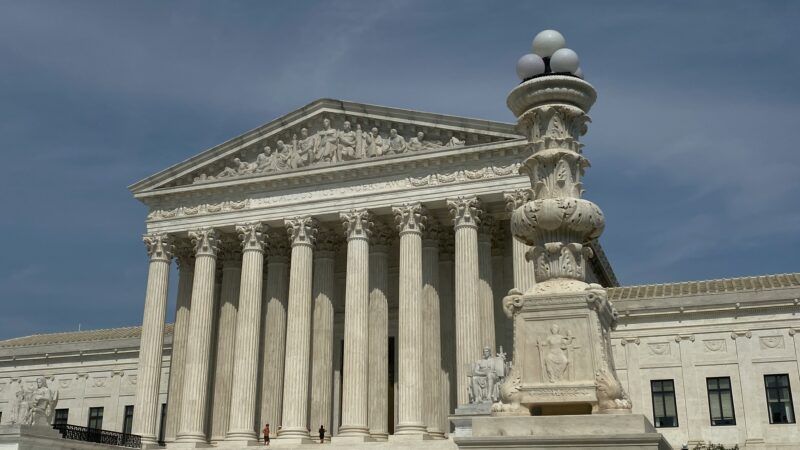Tariffs at the Supreme Court: Trump Wants To Retcon the Law
The administration's argument in the tariffs case hinges on the idea that Congress did not mean to use the words it put in a 1977 law.

The fate of President Donald Trump's tariffs may hinge on whether a majority of the U.S. Supreme Court is willing to accept that the words written in federal statutes might not mean what they plainly say.
As you'd expect, there were a lot of different arguments thrown around during Wednesday's critical oral arguments, where the Trump administration claimed sweeping powers to impose tariffs on nearly all imports while attorneys for a variety of plaintiffs said Trump had overstepped the authority granted by Congress. Overwhelmingly, however, the debate seemed to center on perhaps the most basic of questions when it comes to interpreting the law: Did Congress mean what it said when it wrote the law?
The law in question is the 1977 International Emergency Economic Powers Act (IEEPA), which the Trump administration has used as the legal justification for the vast majority of new tariffs imposed this year. The text of that law grants a variety of powers to the president to "regulate," "block," "nullify," "restrict," "modify," and so on.
As the justices pointed out over and over again on Wednesday, however, the law does not say "tariff." Nor does it give the president the power to impose taxes.
"There are a lot of verbs, but none of them include generating revenue, either directly or as a side effect," noted Justice Ketanji Brown Jackson at one point.
The administration's argument hinges on the word "regulate," which Solicitor General D. John Sauer argued should be understood as allowing tariffs.
"There is a lot in 'regulate' that is not spelled out there," Sauer said. Earlier, during a similar exchange with Justice Neil Gorsuch, Sauer fell back on a similar claim: "Tariffing is the quintessential way of regulating importation."
Several of the justices seemed skeptical of that idea. Justice Amy Coney Barrett, in particular, pressed Sauer to offer any other statute where the word "regulate" was assumed to grant the power of raising taxes. Sauer struggled to respond.
This gets to the core of the tariff case, which goes beyond a normal dispute over policy and asks a serious question about the separation of powers in the constitutional system. If the chief executive can read new meanings into the words that Congress has written in the laws it passed, then there are effectively no limitations on what the president can do.
There are other reasons—maybe even better ones—why the Supreme Court ought to be skeptical of the Trump administration's emergency tariff powers. Trump's use of IEEPA seems to run afoul of the so-called "major questions" doctrine, which says the executive branch can only exercise powers that Congress has explicitly granted. The U.S. Supreme Court invoked that doctrine in other recent high-profile cases, including the 2023 ruling that struck down then-President Joe Biden's student loan forgiveness scheme. The tariffs would also have to pass the similar "non-delegation" test, which says Congress cannot delegate core responsibilities to the executive branch.
Before even getting to those larger questions, however, the justices should think deeply about how far the Trump administration is trying to stretch the meaning of words.
"The president is seeking to set aside all of our trade treaties, unilaterally, under the word 'regulate,'" said Neal Katyal, the attorney representing a group of businesses challenging the tariffs. "I just don't think it can bear that weight."
In an exchange between Sauer and Justice Sonia Sotomayor, the justice suggested that the administration would be on more solid legal ground if it weren't seeking to tariff imports but restrict them outright—after all, she noted, the IEEPA statute plainly allows a president to block or restrict imports.
"It has a lot of verbs," she concluded, referring to IEEPA. "It just doesn't have the one you want."


Show Comments (43)